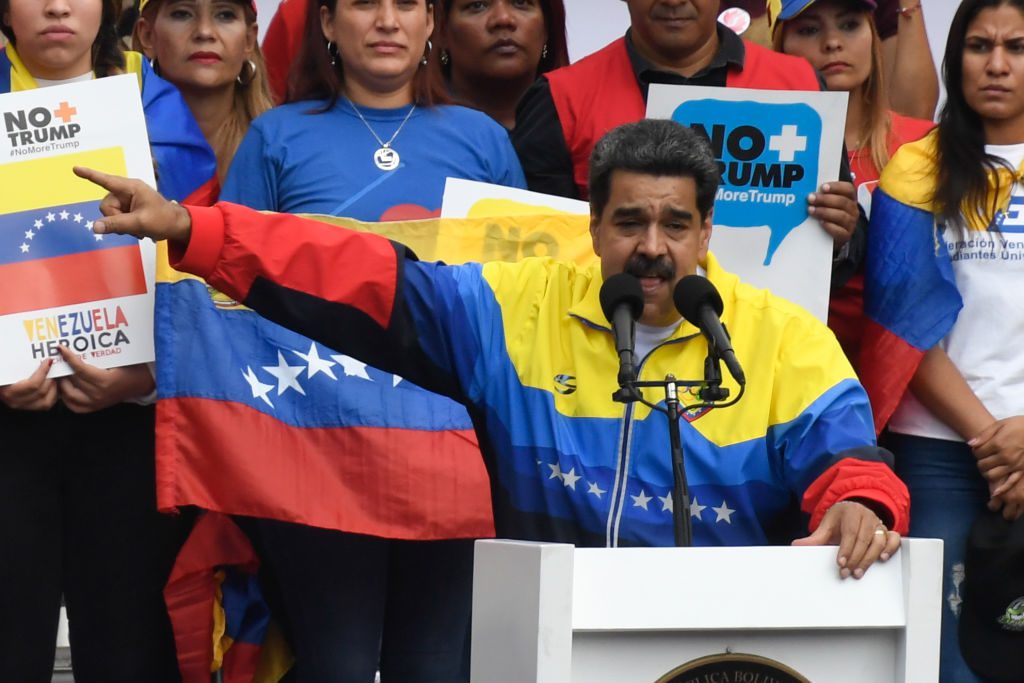


Venezuela’s autocrat and the darling of the Western left, Nicolas Maduro, is threatening to annex Guyana, or at a minimum the oil-rich two thirds of it. It is a sudden move, although the territory in question has been disputed and coveted by Venezuela for over a century. The change: Crude oil was recently discovered in the zone after Guyana gave permission for exploration. Now Maduro has ordered a “democratic” referendum, the crudest way for a tyrant to rally his people under one flag, while the Brazilian military has detected a troop buildup in Venezuela.
It might all be hype; it might not be. It is, however, interesting to note that it is exactly the type of “war for oil” that leftists usually accuse NATO of launching in the Middle East.
Guyana is a lovely country, but with one of the most left-wing governments in the entirety of the British commonwealth. It has repeatedly demanded “reparation” for slavery since its independence from the British in 1966, and has supported Argentina in its disputes with Britain over the Falklands. One can be forgiven for the temptation to wish to see them get what they so rightly deserve for once, getting bitten by the bigger left-wing fish in the pond.
In an earlier century, some European great power would have offered to defend Guyana in return for a permanent lease of its resources and a complete demilitarization of the region. Europe has since then lost both the sense of realpolitik as well as the martial spirit required for such foreign policy.
In the coming days, there might be voices urging the U.S. to “do something” with excuses ranging from humanitarian intervention to fostering “balance of power” against a Venezuelan Mussolini to, bafflingly, an appeal for enforcement of the Monroe Doctrine. It is therefore required to lay down some ground rules.
One, nothing merits a humanitarian intervention in Latin America. As the recently departed grand doyen of American realpolitik once opined, human rights are not a variable to conduct foreign policy and is not an American concern. A region is either strategic, or it is not.
Two, balancing against a Venezuela embarking on a conquest-binge might be necessary, but it does not necessitate American forward presence or ground troops. America can, in fact, urge local allies, such as Colombia, Argentina, and El Salvador to take the burden of local balancing with US support being the last resort. The American experience of imperialism in the Latin Americas isn’t something to be replicated, especially when the U.S. is globally overstretched; it will result only in more anti-Americanism in a historically fraught region. There might someday soon be a need for a war across the southern border for a different purpose. That day isn’t here yet.
Three, the Monroe Doctrine only applies when there are foreign powers planning a permanent military base, one that can be considered an interference in the Western hemisphere enough to alter the hemispheric balance and warrant an American intervention. There is, thus far, no evidence for such an intervention.
In fact, the only core interest is that Venezuela should not conquer Guyana and take over the oil fields. Yet, given Guyana’s politics, this is an opportunity to transform the region.
Guyanese oil exploration can provide jobs for a hungry local workforce. If Washington can facilitate order in the region and organize a core alliance system with like-minded countries who will provide the necessary manpower to provide order, jobs, and a decent life under American tutelage, guidance, and administrative support, it will transform the region for good—certainly for better than, say, China will ever do. American oil companies can profit from it. American graduates can provide administrative support in senior positions in a region hungry for good uncorrupt administration. American southern command can provide deterrence to local allies. New job opportunities and economic boom will ease the migrant pressure on continental United States. All that, without direct war.
We are no doubt back in a renewed era of conquest: Russians in Ukraine, Azerbaijan in Armenia, a potential long-term Israeli occupation of Gaza, and now the threat of a land grab in Latin America. There is no denying it. What conclusions one can draw about an unbalanced multipolarity, about imperial overstretch and potential insolvency and implosion, or about the military “offense-defense balance,” are subjects of further study.
Yet the core American interests remain the same; order without overstretch. Venezuela should not distract us from that.
